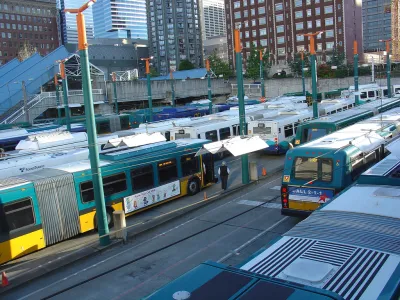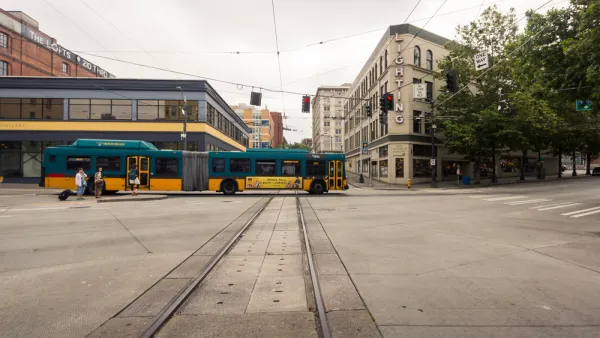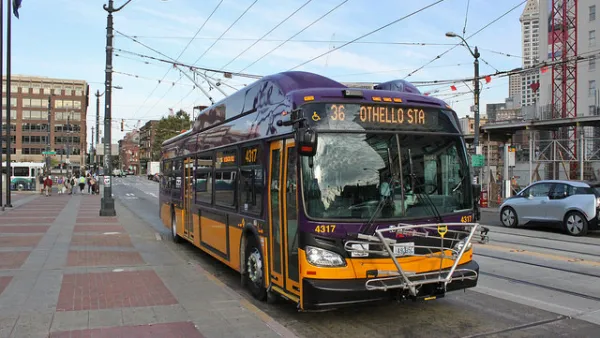The victory for homeless and very low-income transit riders is a reminder of the importance of grassroots organizing.

Last year, organizations in King County provided more than 1.4 million Metro tickets to homeless people, refugees, and other low-income people struggling to afford trips to shelters, job centers, and other crucial resources.
Metro's Human Services Ticket Program, which partially subsidizes tickets for human services agencies to distribute, launched 25 years ago after ongoing public demonstrations by the agencies and their clients. And in September, ongoing organizing once again motivated King County Council to unanimously move to strengthen the program.
Katie Wilson of Seattle's Transit Riders Union explains in the Seattle Transit Blog that rising housing costs and homelessness rates have drastically increased the need for tickets. But a cap on allocations has limited the number of tickets available, and fare increases have made even the discounted price too much for some organizations.
The problem may have continued to get worse, Wilson writes, if not for a dedicated grassroots effort to get the Council to address it. Now, Metro will raise the cap on ticket allocations and cut the price of tickets in half, as well as collaborate with other county stakeholders to fulfill "transit’s role in contributing to the social safety net for the lowest income residents."
In addition to more comprehensive local measures, Wilson turns an eye to big-picture solutions like taking on the State Legislature and integrating the region's transit system—noting:
Many of the hundreds of low-income people who have participated in struggles for affordable transit would love to take on these broader transformative issues, if only they didn’t have to be more immediately concerned about getting from A to B.
FULL STORY: Big Wins for Very Low-Income and Homeless Transit Riders

Analysis: Cybertruck Fatality Rate Far Exceeds That of Ford Pinto
The Tesla Cybertruck was recalled seven times last year.

National Parks Layoffs Will Cause Communities to Lose Billions
Thousands of essential park workers were laid off this week, just before the busy spring break season.

Retro-silient?: America’s First “Eco-burb,” The Woodlands Turns 50
A master-planned community north of Houston offers lessons on green infrastructure and resilient design, but falls short of its founder’s lofty affordability and walkability goals.

Test News Post 1
This is a summary

Analysis: Cybertruck Fatality Rate Far Exceeds That of Ford Pinto
The Tesla Cybertruck was recalled seven times last year.

Test News Headline 46
Test for the image on the front page.
Urban Design for Planners 1: Software Tools
This six-course series explores essential urban design concepts using open source software and equips planners with the tools they need to participate fully in the urban design process.
Planning for Universal Design
Learn the tools for implementing Universal Design in planning regulations.
EMC Planning Group, Inc.
Planetizen
Planetizen
Mpact (formerly Rail~Volution)
Great Falls Development Authority, Inc.
HUDs Office of Policy Development and Research
NYU Wagner Graduate School of Public Service



























